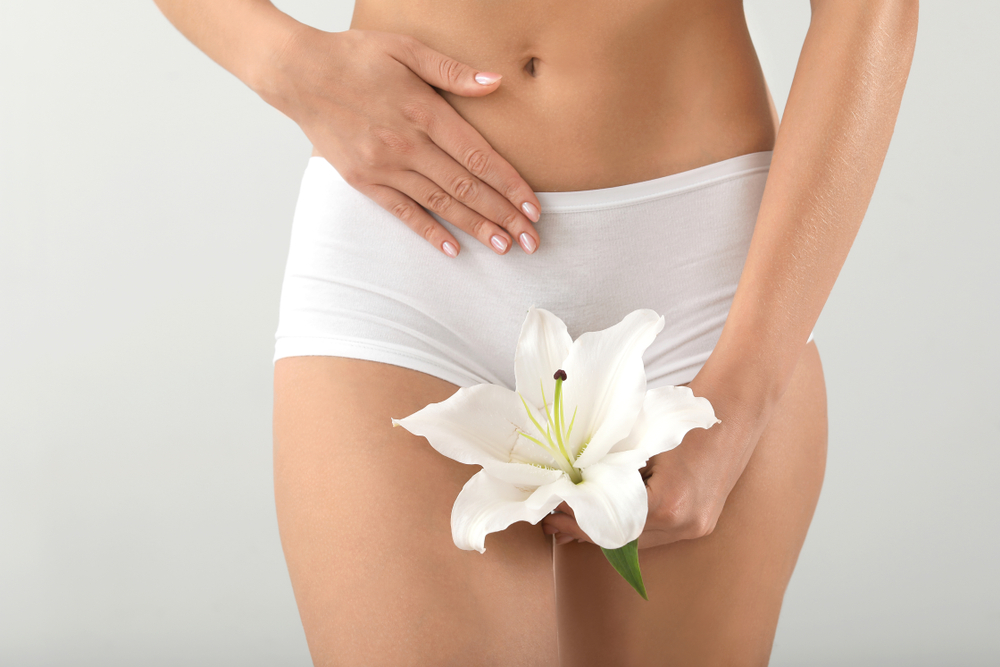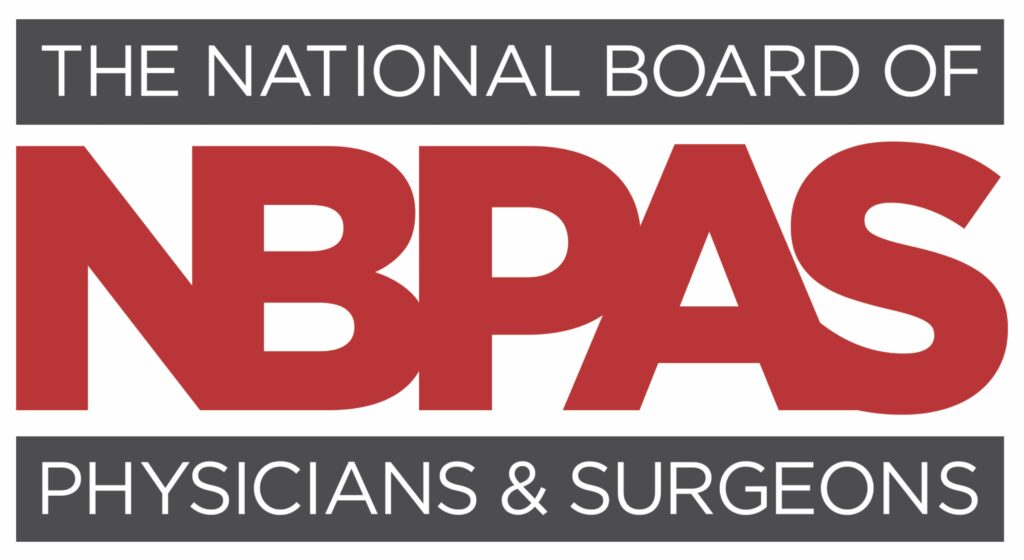
Because your vagina is a sensitive area, proper vaginal hygiene is a must. As a woman, taking care of your vaginal health is important for avoiding discomfort, infections, and other health problems. However, many women have questions about taking care of their vaginal health, including what they should and shouldn’t do to stay healthy down there. Let’s take a look at a few dos and don’ts in more detail below.
6 Dos of Vaginal Health
Maintaining your vaginal health doesn’t have to be a challenge. Once you know what is good for your vagina, you’ll be on your way to a happier, healthier life.
1. Make Regular Appointments with Your Gynecologist
Above all else, it’s important to schedule regular appointments with your gynecologist. Most doctors recommend having a women’s wellness preventative check at least once a year to ensure overall health and to detect any potential health concerns.
A preventative check, or well-woman exam, with your gynecologist usually consists of a Pap smear, pelvic exam, STD panel, and ordering a mammogram, depending on your age. It’s also a great time to address any concerns or questions you may have about your vaginal health, including questions regarding reproductive and sexual health.
Regular check-ups are also important for detecting the early stages of cervical cancer, which can turn severe rather quickly if not treated as soon as possible. Detecting cervical cancer in its early stages increases your chances of being treated successfully.
2. Practice Safe Sex
Having sexual intercourse is a healthy, natural part of life that shouldn’t be considered unsanitary. However, it can potentially lead to the development of certain infections, like yeast infections, bacteria vaginosis, or urinary tract infections (UTI).
Being diligent about practicing safe sex is one of the best ways to avoid vaginal issues. Safe sex means using proper protection, like condoms, to avoid contracting sexually transmitted infections (STIs) or diseases (STDs) such as gonorrhea, chlamydia, HIV, herpes, and others. It’s also important to ensure you change condoms when switching between oral, vaginal, and anal sex.
Women should also urinate after sex to flush out any bacteria that may be in the urethra, which is the leading cause of UTIs. Even better, consider showering after sex and using warm water to completely clean the vulva and surrounding areas.
3. Wear the Right Underwear
When moisture accumulates and sits in your pubic area for long periods, you are more likely to contract a vaginal infection, since the moisture can promote bacteria growth. Wearing the right underwear made with breathable materials, like cotton, can help keep your vagina cool and dry.
If you are a woman who experiences a lot of vaginal discharge, consider changing your underwear multiple times throughout the day to prevent excess moisture from sitting for long. It’s also important to wear pants that aren’t too tight-fitting, since they can restrict air circulation; and change out of wet swimsuits or sweaty workout clothes as soon as possible.
4. Kegel Exercises
Unless you’ve given birth, you may not be aware of the importance of maintaining the strength in your pelvic floor muscles. Strengthening these muscles over time with Kegel exercises can help support your uterus and vaginal muscles, as well as your bladder and other organs. Not only will your uterine muscles be stronger, but you can also help reduce the risk of stress urinary incontinence, which causes your bladder to leak during everyday activities.
Your medical provider can provide proper education on the best way to do Kegel exercises. The important thing to remember is to find the right muscles, focus on tightening them correctly, and remain consistent in keeping Kegel exercises a part of your daily routine. When done correctly, you can expect to see results within a few weeks, although many women may not see results until after a few months.
For those who aren’t seeing results from doing Kegel exercises on their own, pelvic floor therapy or vaginal rejuvenation treatments can be an option. Pelvic floor therapists help women learn how to do Kegels properly, which can resolve a number of issues, including urinary incontinence, bowel incontinence, pain during sex, and more.
5. Wash External Parts Gently
Your vaginal area is very delicate, which is why it’s so important to wash the external part of your pubic area gently. There’s no need to harshly scrub your vulva with a highly scented, strong soap. Instead, clean gently and stick to warm water only. If you want to use soap, it’s best to avoid any that is heavily scented. You should also stick to cleaning just the external parts and avoid getting soap inside your vagina.
6. Consider Vaginal Rejuvenation
Non-surgical vaginal rejuvenation is a great option for women looking to improve the appearance of their vaginal area, treat sexual dysfunction, improve vaginal laxity, strengthen pelvic floor muscles, improve urinary incontinence, and more. At Mirabile M.D., we offer multiple different vaginal rejuvenation options for our female patients, including the following:
- FormaV: This vaginal rejuvenation treatment can help tighten your pelvic floor muscles and treat problems such as mild urinary leakage, vaginal laxity, sexual dysfunction, and poor lubrication.
- Morpheus8 V: This non-surgical treatment is a fractional radio frequency treatment for women who may experience vaginal laxity, dryness, pain during intercourse, enlarged labia, urinary leakage, and more.
- VTone: This treatment can help to improve urinary incontinence and pelvic floor strength with intravaginal electrical muscle stimulation (EMS).
We also offer Aviva Scarless Labiaplasty, which is a non-surgical, radio frequency treatment that can be used to shrink the labia and other vulvar tissue. Many women may experience enlarged labia and other surrounding tissue due to genetics, pregnancy, childbirth, hormonal changes, and aging. An enlarged labia can be uncomfortable and look unappealing in tight-fitting clothing such as yoga pants. Aviva is a great solution for these issues and offers minimal discomfort and downtime.

3 Don’ts of Vaginal Health
Just as doing the right things for your vaginal health is vital, knowing what to avoid is also very important. As you look to maintain proper vaginal hygiene, consider these don’ts.
1. Use Douches
When douching was first introduced, many women thought it would be an effective way to keep their vaginas clean and smelling fresh. However, douching can greatly impact your vagina’s pH balance, leading to the growth of bacteria and causing infections.
The truth is, your vagina is actually very effective at cleaning itself and maintaining the right pH level for your body. This is one of the reasons many women experience vaginal discharge day-to-day, since the fluid from the vaginal and cervical glands helps carry away bacteria and other dead cells.
Even large amounts of discharge can be a normal and healthy sign for many women. Because of this, the act of douching, or cleaning the inside of your vagina yourself, is completely unnecessary.
2. Shave Pubic Hair
Many women may prefer to trim, or even completely shave, their pubic area. However, while some trimming is okay for keeping the area from becoming unruly, it’s not recommended that you get rid of your pubic hair entirely. This is because pubic hair plays a huge role in preventing excess bacteria from entering the vulva.
Additionally, hair removal tools like razors, shaving cream, and wax can be incredibly irritating to the vulva. You may cut your skin, which can easily lead to infection, or you may experience razor burn or ingrown hairs, which can be itchy and painful. Laser hair removal for the bikini area is a popular and sanitary option for hair removal.
3. Use Petroleum Jelly Products
Lubricants are great for sexual intercourse, but ones containing petroleum jelly should be avoided since they can lead to inflammation and infection. It’s also best to avoid products like non-natural oils, scents, dyes, and parabens to minimize any irritation in your vaginal area.
If you and your partner want to use a lubricant, it’s recommended to find one that is water-, silicone-, or oil-based.
Vaginal health and hygiene are an important part of women’s wellness, so it’s best to take care of this area to avoid irritation or infection. It’s also important to see your gynecologist as soon as possible if you notice any changes from your norm, since this can indicate that something is wrong.
If you have additional gynecology questions related to your vaginal health or would like to schedule an appointment with a provider here at Mirabile M.D., contact us today at 913-888-7546.

